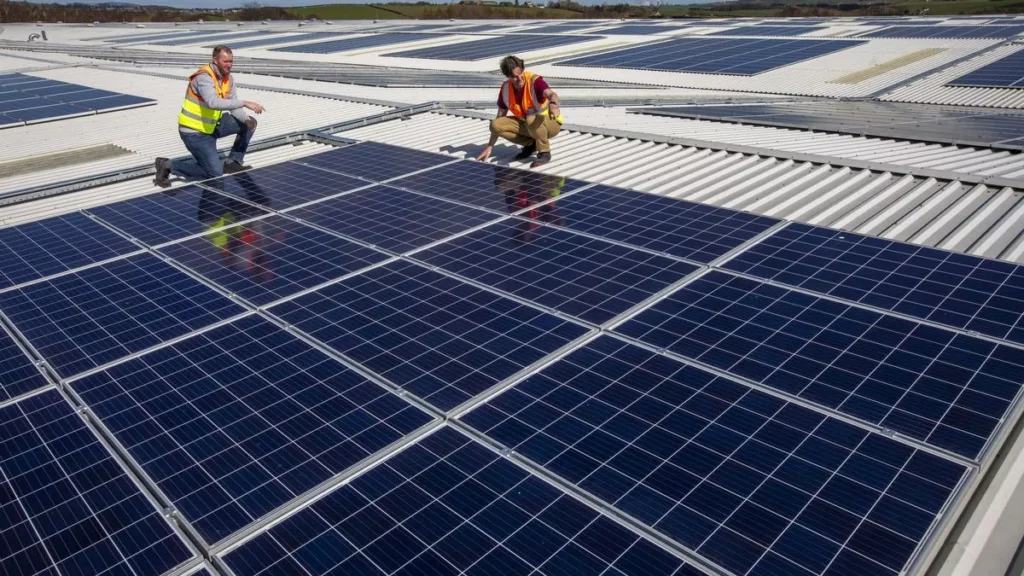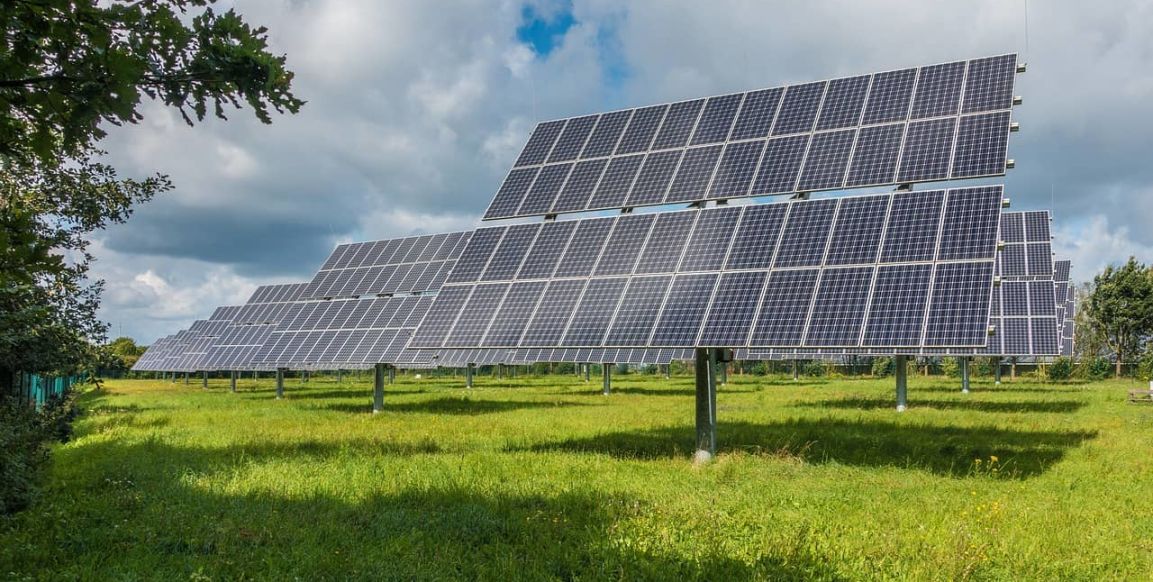The landscape of energy production is constantly evolving. As we strive for cleaner and more efficient solutions, new opportunities are emerging in the power generation sector.
If you’re passionate about contributing to a sustainable future and enjoy a good challenge, this industry offers a multitude of rewarding career paths. Here, we explore the top 10 highest-paying jobs in power generation for 2024, along with their average salaries in the US to help you chart your course.
1. Energy Storage Engineer: Commanding the Future of Power
Leading the charge in the power generation sector is the Energy Storage Engineer. With an average annual salary of $151,632, this role plays a pivotal role in integrating renewable energy sources into the grid. They design, develop, and implement energy storage systems, ensuring a reliable and efficient power supply.
From expertise in system design and modeling to proficiency in relevant software tools, becoming an Energy Storage Engineer requires a solid educational foundation, often a Bachelor’s or even a Master’s degree in a relevant field, coupled with practical experience in the field.
Staying ahead of the curve by joining professional organizations like the Electrochemical Society (ECS) or the IEEE Power and Energy Society further bolsters your credentials.
2. Electrical Engineer: Powering Our World
Electrical Engineers are the backbone of the power generation industry, with an average annual salary of $95,349. From designing intricate power plants to developing cutting-edge renewable energy systems, their work spans a vast spectrum.
They ensure the safe and efficient generation, transmission, and utilization of electrical energy across various sectors. To become an Electrical Engineer, a Bachelor’s degree in electrical engineering or a closely related field is essential.
Participating in engineering projects, research, or student organizations fosters valuable practical skills. Specialization in areas like power systems, electronics, or control systems allows you to carve a niche while obtaining a Professional Engineer (PE) license opens doors to new opportunities.
3. Nuclear Engineer: Experts in Safe and Sustainable Nuclear Power
Nuclear Engineers play a critical role in the energy sector, with an average annual salary of $95,270. They design, develop, and operate nuclear power plants, ensuring the safe and efficient use of nuclear energy. Their expertise extends to various fields, including nuclear medicine, research, and safety.
A Bachelor’s degree in nuclear engineering, nuclear science, or a related field is the stepping stone to this specialized career. Internships or cooperative programs with nuclear facilities provide invaluable hands-on experience.
Pursuing a Master’s or Ph.D. allows for deeper specialization and research opportunities, while a Professional Engineer (PE) license can be crucial for specific positions.
4. Mechanical Engineer: Masters of Motion in Power Generation
Mechanical Engineers are the driving force behind the mechanical systems that keep our power plants running smoothly. Their average annual salary is $90,645. They apply the principles of physics, mathematics, and material science to design, analyze, and optimize a wide range of mechanical components used in power generation.
A Bachelor of Science (B.S.) or Bachelor of Engineering (B.Eng.) in Mechanical Engineering is the standard entry point. Participating in engineering projects, design competitions, or research fosters valuable skills. For certain projects or offering engineering services directly to the public, a Professional Engineer (PE) license is a sought-after credential.
5. Environmental Engineer: Champions of Sustainability in Power Generation
Environmental Engineers are the guardians of our environment in the power generation sector, with an average annual salary of $85,285. They leverage their expertise in engineering, science, and mathematics to tackle environmental challenges.
Their focus is on developing solutions that minimize the environmental impact of power generation while ensuring sustainability and public health. A Bachelor’s degree in environmental engineering or a closely related field, like civil engineering with a focus on environmental engineering, is the first step.
Internships or co-op opportunities equip you with practical skills, while a Professional Engineer (PE) license enhances your marketability. For those seeking leadership or research roles, a Master’s degree (M.S. or M.Eng.) or a Ph.D. in environmental engineering can be a stepping stone.
6. Power Distribution Engineer: Delivering Power Efficiently
Power Distribution Engineers are specialized electrical engineers with an average annual salary of $85,058. They ensure the safe, reliable, and efficient delivery of electricity from power plants to consumers. Their expertise encompasses the design, operation, and maintenance of electrical power distribution systems within the power grid.
A Bachelor’s degree in electrical engineering or a related field with a focus on power systems or power distribution is the educational foundation. Internships or co-op opportunities with electrical utilities, engineering consulting firms, or energy companies provide practical experience.
Obtaining a Professional Engineer (PE) license broadens your career prospects. Specializing in areas like substation design, distribution system planning, renewable energy integration, or smart grid technologies allows you to tailor your expertise to the evolving power landscape.
7. Energy Auditor: Saving Energy, Saving Money

Energy Auditors play a crucial role in optimizing energy consumption, with an average annual salary of $52,473. They assess energy usage and efficiency in buildings, facilities, and industrial processes. Their primary goal is to identify areas for conservation and recommend measures to reduce energy consumption, improve sustainability, and ultimately lower energy costs.
A Bachelor’s degree in a relevant field like engineering, environmental science, or a related discipline is the first step. Hands-on experience is vital, so seek out internships, entry-level positions, or apprenticeships in energy auditing or related fields.
Obtaining certifications like the Certified Energy Manager (CEM) or Certified Energy Auditor (CEA) from organizations like the Association of Energy Engineers (AEE) demonstrates your competency. Staying updated on industry trends, regulations, and technologies through continuous professional development ensures you remain competitive.
8. Electrical Power-Line Installer and Repairer (Lineman): Keeping the Lights On
Electrical Power-Line Installers and Repairers, also known as linemen, are the skilled professionals responsible for maintaining the vital network of electrical power lines, with an average annual salary of $64,693. These frontline workers ensure the safe and reliable delivery of electricity by installing, maintaining, and repairing power lines and associated equipment.
They brave challenging weather conditions and high-risk environments to keep our lights on. While a high school diploma or equivalent is the starting point, enrolling in apprenticeship programs offered by electrical utility companies, electrical contractors, or labor unions equips you with the necessary skills and knowledge.
Certifications from organizations like the National Joint Apprenticeship and Training Committee (NJATC) or state-specific organizations further enhance your credentials.
9. Power Plant Operator: The Engine Room of Power Generation
Power Plant Operators are the backbone of power generation facilities, with an average annual salary of $69,986. They operate and control the machinery and systems within power plants to ensure the safe, efficient, and reliable production of electricity.
Understanding the different types of power plants, from coal and natural gas to nuclear, hydroelectric, and renewable energy sources, is crucial. While vocational or technical training programs related to power plant operations, electrical systems, or industrial maintenance are beneficial, some entry-level positions in the energy or utility industry can be a starting point.
These might include roles as assistant operators, maintenance technicians, or equipment operators.
10. Wind Turbine Technician: Harnessing the Power of Wind
Wind Turbine Technicians, also known as Wind Turbine Service Technicians or Wind Techs, are the green guardians of the wind energy sector, with an average annual salary of $50,422. They work on wind energy sites, maintaining, repairing, and operating wind turbines that convert wind energy into electricity.
A high school diploma or equivalent is the foundation, but a focus on mathematics, physics, and mechanical or electrical systems is advantageous. Familiarizing yourself with the wind energy industry, including different turbine types, wind farm operations, and the environmental impact, provides a well-rounded understanding.
While not always mandatory, vocational or technical training programs related to wind energy technology or renewable energy systems can give you an edge. Industry-recognized certifications from organizations like the North American Wind Energy Association (NAWEA) or the Global Wind Organization (GWO) further bolster your credentials.
The Future of Power Generation: A Bright Horizon
The power generation sector is undergoing a significant transformation, driven by a collective desire for cleaner and more sustainable energy sources. Renewable energy sources like solar, wind, and hydropower are playing an increasingly prominent role, with advancements in energy storage technologies further enhancing their reliability.
Distributed energy resources, including rooftop solar panels and microgrids, are decentralizing power generation, while hydrogen is emerging as a potential clean energy carrier. Advanced nuclear reactor designs are also being developed to address safety concerns and provide more efficient and sustainable nuclear power options.
Is a Power Generation Career Right for You?
If you’re passionate about contributing to a sustainable future, enjoy challenges, and possess a strong work ethic, a career in power generation might be the perfect fit. The industry offers a wide range of opportunities, from technical roles to engineering positions, catering to diverse skill sets and interests.
The potential for good job stability, competitive salaries, and career advancement makes it an attractive option for those seeking a fulfilling and rewarding path.
Taking the First Step
Whether you’re a recent graduate or seeking a career change, the power generation sector offers a dynamic environment with opportunities for continuous learning and growth. Here are some factors to consider when evaluating if a power generation career aligns with your aspirations:
- Interests: Do you enjoy a blend of technical challenges and problem-solving? Are you passionate about environmental sustainability and innovation? The power generation industry offers a variety of roles that cater to these interests.
- Skills: Your skillset is a crucial factor. Depending on the chosen path, strong analytical, problem-solving, and communication skills are often essential. Technical skills in areas like mathematics, physics, or engineering can be advantageous for many roles.
- Education and Training: Educational requirements vary depending on the specific job. Some positions may require a high school diploma or equivalent, while others might necessitate a Bachelor’s degree or even a Master’s degree in a relevant field. Apprenticeship programs and industry certifications can equip you with the necessary skills and knowledge for specific trades.
How to Advance in Your Power Generation Career
The power generation sector offers a rewarding career path with opportunities for advancement. Here are some strategies to propel you forward:
- Stay Updated: The industry is constantly evolving. Commit to lifelong learning by attending workshops, and conferences, and pursuing continuing education opportunities to stay abreast of the latest trends, technologies, and regulations.
- Specialize: Consider specializing in a niche area like renewable energy, nuclear power, or grid management. This focused expertise can open doors to unique career opportunities.
- Mentorship: Seek guidance from experienced professionals in the field. A mentor can provide valuable insights and advice on career advancement.
- Certifications: Depending on your chosen role, obtaining relevant certifications can enhance your marketability and demonstrate your expertise.
- Networking: Building strong professional networks within the industry can connect you with potential opportunities and mentors.

